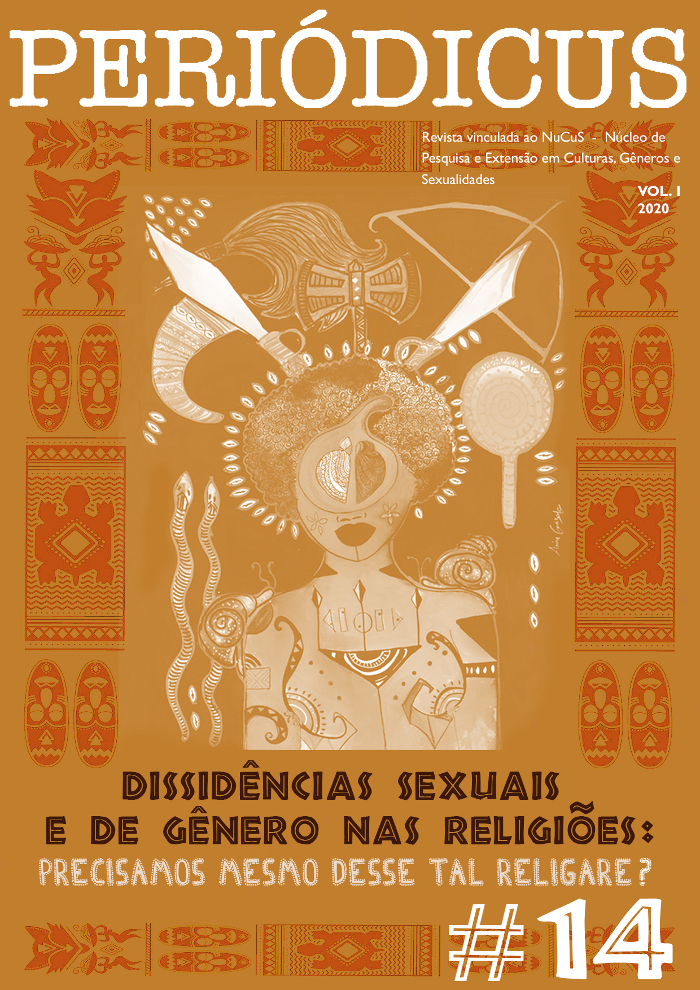Religar para que e para quem? Novas perspectivas nos estudos de religiosidade e dissidências sexuais e de gêneros - uma breve apresentação
DOI:
https://doi.org/10.9771/peri.v1i14.43139Abstract
No momento que atravessamos, a mera junção de palavras como gênero e sexualidade com religião faz soar um alarme e isso não é surpreendente, uma vez que temos assistido a um constante ataque aos direitos sexuais, de gênero e reprodutivos por parte de certos grupos religiosos, como a Igreja Católica e algumas das maiores igrejas evangélicas do país. Fatos ainda recentes, tais como a oposição ferrenha, em 2011, dos parlamentares evangélicos ao Caderno Escola sem Homofobia, apelidado de "kit gay", e a escolha do deputado e pastor Marco Feliciano para a presidência da Comissão de Direitos Humanos e Minorias (CDHM) da Câmara dos Deputados, em 2013, de onde procurou avançar Projetos de Lei contrários aos direitos LGBTQIA+ (SALES; MARIANO, 2019, p. 17), lançaram as bases para este alarme. De 2013 até o presente, a situação parece ter apenas piorado, culminando na eleição de um presidente abertamente conservador, homofóbico e sexista.Downloads
Downloads
Published
How to Cite
Issue
Section
License
Copyright (c) 2021 Luciana Duccini

This work is licensed under a Creative Commons Attribution-NonCommercial 4.0 International License.
Authors who publish in this journal agree to the following terms:
Authors retain copyright and grant the journal the right of first publication, with the work simultaneously licensed under a Creative Commons Attribution Noncommercial License that allows the work to be shared with acknowledgment of authorship and initial publication in this journal, but prohibits commercial use.
Authors are authorized to enter into separate additional contracts for non-exclusive distribution of the version of the work published in this journal (e.g., publishing in an institutional repository or as a book chapter), with acknowledgment of authorship and initial publication in this journal.
Authors are permitted and encouraged to publish and distribute their work online (e.g., in institutional repositories or on their personal website) at any point before or during the editorial process, as this can generate productive changes and increase the impact and citation of the published work (see The Effect of Open Access).








